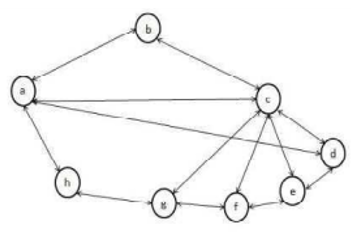Distributed Hashing Based Group Management Scheme for the Peer-to-Peer Trust Model
Keywords:
Peer-to-peer Network (P2P), Distributed management, Trust scheme, secure group, IntrudersAbstract
: In recent days, computing and communication environments are extensively more difficult and disorganized than classically distributed systems over the internet, lacking any centralized organization or hierarchical control. In such case the emerging technology peer to peer overlay network is the answerable one. The peer to peer networks will provide a good layer for creating a data sharing, content delivery and optimal routing in many applications. Structured peer to peer network has a fixed structure that will be formed as a fixed topology. If any one of the nodes leaves or enters in the network, topology may vary. In such case, it will lead to load failure, link failure and resilience. a new architecture namely Distributed Hashing distributed grouping management (DHDGM) is proposed. The proposed DHDGM model uses the secure group architecture model those are processed vertically for the selection of group header. The resurces are shared between the group headers for the detection of the intruders. With the distributed grop management of the data between the network group data is transmitted in the P2P network. The simulation analysis of the proposed DHDGM model exhibist the ~4% - 7% reduced delay and packet drop rate compared with the existing ATAR and RSPP model.
Downloads
References
Wippold, G. M., Frary, S. G., Abshire, D., & Wilson, D. K. (2021). Peer-to-peer health promotion interventions among African American men: a scoping review protocol. Systematic reviews, 10(1), 1-6.
Al-Rakhami, M. S., & Al-Mashari, M. (2021). A blockchain-based trust model for the internet of things supply chain management. Sensors, 21(5), 1759.
Gupta, R., Singh, Y. N., & Goswami, A. (2021). Trust estimation in peer-to-peer network using BLUE. Peer-to-Peer Networking and Applications, 14(2), 888-897.
Esmat, A., de Vos, M., Ghiassi-Farrokhfal, Y., Palensky, P., & Epema, D. (2021). A novel decentralized platform for peer-to-peer energy trading market with blockchain technology. Applied Energy, 282, 116123.
Khan, P. W., & Byun, Y. C. (2021). Blockchain-based peer-to-peer energy trading and charging payment system for electric vehicles. Sustainability, 13(14), 7962.
Munoz, P., Pérez-Vereda, A., Moreno, N., Troya, J., & Vallecillo, A. (2021, October). Incorporating Trust into Collaborative Social Computing Applications. In 2021 IEEE 25th International Enterprise Distributed Object Computing Conference (EDOC) (pp. 21-30). IEEE.
Tennakoon, P., Karunathilaka, S., Lavakumar, R., & Alawatugoda, J. (2021). Anonymous and Distributed Authentication for Peer-to-Peer Networks. Cryptology ePrint Archive.
Hasan, I., He, Q., & Lu, H. (2022). Social capital, trusting, and trustworthiness: Evidence from peer-to-peer lending. Journal of Financial and Quantitative Analysis, 57(4), 1409-1453.
Verma, R., & Chandra, S. (2021). A systematic survey on fog steered IoT: Architecture, prevalent threats and trust models. International Journal of Wireless Information Networks, 28(1), 116-133.
Verma, M. (2021). Smart contract model for trust based agriculture using blockchain technology. International journal of research and analytical reviews, 8(2), 354-355.
Vatankhah Barenji, R. (2022). A blockchain technology based trust system for cloud manufacturing. Journal of Intelligent Manufacturing, 33(5), 1451-1465.
Jiao, R., Przepiorka, W., & Buskens, V. (2021). Reputation effects in peer-to-peer online markets: A meta-analysis∗. Social Science Research, 95, 102522.
Mohamed, M. A., Hajjiah, A., Alnowibet, K. A., Alrasheedi, A. F., Awwad, E. M., & Muyeen, S. M. (2021). A secured advanced management architecture in peer-to-peer energy trading for multi-microgrid in the stochastic environment. IEEE access, 9, 92083-92100.
Soto, E. A., Bosman, L. B., Wollega, E., & Leon-Salas, W. D. (2021). Peer-to-peer energy trading: A review of the literature. Applied Energy, 283, 116268.

Downloads
Published
How to Cite
Issue
Section
License
Copyright (c) 2023 Prasida Sunanda, K. A. Janardhanan, Rajesh Gupta, Hendy Tannady, Navin Kumar Shrivastava, Tarun K. Sharma

This work is licensed under a Creative Commons Attribution-ShareAlike 4.0 International License.
All papers should be submitted electronically. All submitted manuscripts must be original work that is not under submission at another journal or under consideration for publication in another form, such as a monograph or chapter of a book. Authors of submitted papers are obligated not to submit their paper for publication elsewhere until an editorial decision is rendered on their submission. Further, authors of accepted papers are prohibited from publishing the results in other publications that appear before the paper is published in the Journal unless they receive approval for doing so from the Editor-In-Chief.
IJISAE open access articles are licensed under a Creative Commons Attribution-ShareAlike 4.0 International License. This license lets the audience to give appropriate credit, provide a link to the license, and indicate if changes were made and if they remix, transform, or build upon the material, they must distribute contributions under the same license as the original.





